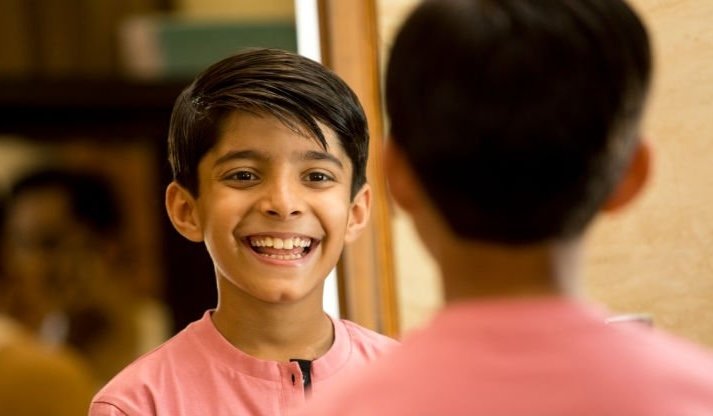Recently, I was speaking to my senior from college on the phone who has an 11 year old daughter. As we were chatting, the daughter (let us call her Arya) finished her online tuition classes. My senior took a break from our conversation, asked Arya to have her snacks and then sit down to complete her homework. She then started expressing her fear over Arya’s struggles in science and how if she didn’t do well she would not be able to fulfil her own dream of becoming a doctor. Now my senior and her husband both are loving and supportive parents and want the best for their only child. As far as I know they have never burdened the child with their own expectations, they always made her aware of career choices based on their own experience and let her choose for herself.
Yet this conversation reminded me of all those times I have spoken to my nieces and nephews and even the children of my friends where I have had nothing else to ask them except what they want to become when they grow up and have gotten similar responses of becoming a doctor, engineer, lawyer and the occasional astronaut.
All this left me thinking of questions about what we as adults are talking to children about today.
- When talking about their future do we only end up asking questions about what they want to do in their career? or in terms of finances?
- By doing this are we inculcating the materialistic, capitalist ideologies right from childhood?
- Are we producing highly competitive individuals whose only measure of success in their lives is their monthly income or the car they can buy?
Over the past several years research has shown that competencies needed to become a good leader are things like emotional intelligence, curiosity, trustworthiness, communication and teamwork which we as parents or teachers almost hardly ever talk to children about let alone allow them space to nurture these skills and values. Perhaps this is the reason behind the shortfall in highly competent leaders as we go higher up the ladder and according to research often people are selected based on attributes like aggression. Also, perhaps that is the reason that many of the decisions taken by leaders today all over the world are dis-compassionate and lacking in growth mindset. By the time we realise what competencies we need to be successful overall in life it is often a little too late.
Sure literacy, numeracy, science are essential skills for children to have for career initiation and growth, and agreed our professional lives take about 40% to 60% of our time. But success can be defined in terms much wider than career to include things like self awareness, values, attitude towards failure, negotiation skills to be able to produce functional healthy individuals. Many countries in the world today are focussing on professional and personal life balance and it has been seen in those models that productivity is not necessarily associated with more time being spent at office but by having a healthy balance between these two.
So, I started exploring schools of thought which focus on this holistic growth in learning and life and currently I have been especially drawn to two approaches. I have briefly described them below but if you want to know more about them I have also linked some resource material on the respective sub-titles below.
- The Humanistic approach
Humanists believe that each learner should be able to reach his or her full potential and hence be a fully autonomous person. Personal freedom, choice, and responsibility are the focus. The humanistic approach places a great deal of emphasis on the learner’s choice and control over the course of their learning. Humanistic educators believe it is important for students to be motivated and engaged in the material they are learning, and this happens when the topic is something the students need and want to know. Learners search for their own meaning and direction in life as well as define what is true and false, what is pleasant and satisfying, what is unpleasant and dissatisfying. The goal of this approach is for learners to develop their own unique understanding of life. Education is a choice. The learner is a unique, free choosing and responsible creature made up of intellect and emotion.
- Socio Emotional Learning
Social and emotional learning (SEL) is the process through which children and adults understand and manage emotions, set and achieve positive goals, feel and show empathy for others, establish and maintain positive relationships, and make responsible decisions. 5 core competencies taught in SEL, viz., self awareness, self management, social awareness, relationship skills, responsible decision making together enhance students’ capacity to integrate skills, attitudes, and behaviours to deal effectively and ethically with daily tasks and challenges. The integrated SEL framework thus promotes holistic intrapersonal, interpersonal, and cognitive competence. (Source: casel.org)
Although my thoughts around this are still maturing, I now feel I have a fair idea of what I am going to talk about the next time I meet one of the youngsters and I have noted some of my thoughts here. Hope they help you too to have a conversation with your child the next time.
Try talking to children about these areas of their future:
- Around self awareness
- What are your strengths?
- What are you curious about?
- What are things you do that drive you or motivate you? (To know more about motivating children read my article linked here)
- What are things you find challenging to do? Can we plan together to get better at those?
- Around relationships
- What are things you love about your family relationships? Who are people who you feel closest to? Who do you want to be close to in future?
- What are things you love about your friends? How do you want your relationship with them to be when you grow up?
- Around safety and security
- Who are your support systems? Who would you want to go to in times of crisis?
- What kind of a space makes you feel safe, relaxed and happy? What kind of a home would make you feel safe?
- What kind of financial security would make you feel safe?
4. Around Spirituality
- By spirituality here I don’t mean in terms of religion but around things that the child really connects to? Art, music, dance, expression…what are things that relax you, ground you and help you to recuperate?
Most importantly it is important to tell children that they can be whatever they want to be and as adults we have trust in their ability to become their best selves.
P.S. I shared my thoughts with my senior and she absolutely loved them. She responded that she had been reading articles all around which spoke about spending more time with her child playing or teaching them new skills which again would help them to do better in their professional lives. But not much is being spoken about the personal lives of children and how they want that to be.




Great insights and write up especially the part with measure of success, which is highly associated with finances by majority of the society.
thanks for your comment Rishab